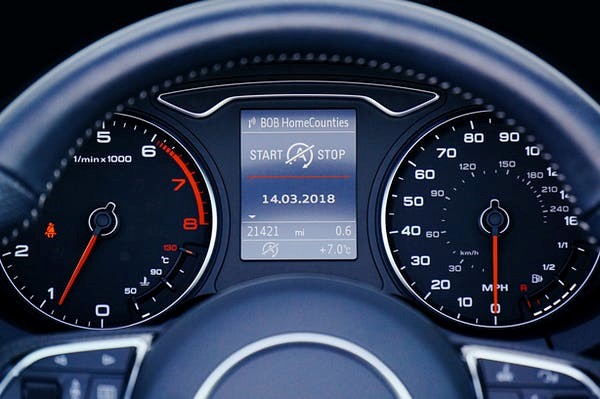Tip: Check Fuel Consumption
This article may contain affiliate links.
Note: This article is written from a Canadian perspective so that country’s measurement metrics are used.
Fuel efficiency can be a critical factor when buying a used car because of the expense of fuel. Gasoline is the most prevalent form of fuel. About 75% of the Canadian population uses gas cars. If you check, the country has over 12,000 gas stations across its length and breadth. The other preferred and well-known variety is flex-fuel or ethanol-gasoline blends in the used car segment. Almost seven of 10 provinces exhibit a high preference for this. But the challenge is it’s only available at a limited number of fueling stations.
If you check the status of diesel cars, you will find their pricing to be a little higher than gas vehicles. However, you should note that a diesel car’s running cost can be much lower due to the fuel’s higher energy efficiency, lessening fuel use by 15-30%. Diesel can be more emission-friendly also.
In the case of the EV variant, not even one percent of the used car shoppers showed interest in this category. However, things will likely change as most car companies plan to go green using this technology. No matter what fuel car you need, check options with used car dealers Calgary AB once. You can get a good range across different makes and models.

Determining a Used Car’s Fuel Efficiency
You can refer to the L/100 km (liters of fuel used per 100 kilometers) rating of the car. A lower rating shows high fuel efficiency. You may have to follow the MPG or miles per gallon rating in Canada. If this rating is high, you can expect the fuel consumption to be good. While it is a critical consideration, you must remember that calculating your gas cost for a year, depending on automobile usage, is also essential. On average, a Canadian covers a distance of about 20,000 km annually, including 45% on highways and 55% in the city. You can estimate your annual fuel expense by accounting for factors like—“yearly distance covered X fraction of city driving X fuel consumption rating for city / 100.” For highways, you will need to consider highway driving metrics.
Improving vehicle fuel consumption
People burn more fuel when driving in the city by accelerating their vehicles. One of the helpful ways can be gentle acceleration. If you are gentle with the pedal, you can reduce gasoline or diesel use by almost 15%. Another thing you can do is avoid braking too hard, which is unsafe and burns more fuel. It is better to drive at a safe speed and follow traffic flow to prevent the need for sudden braking. Then, you can also control the speed of the car. Driving at 80 kmh or more can consume more gas—the consumption can increase by 20% with the increasing speed, for example, from 100km/h to 120km/h.

One more area to look at is the air conditioning system. It can increase your fuel cost by almost 20%. You can open the windows to bask in the fresh air when you are in the city. If you are on the highway, the car’s ventilation system should work. Some also recommend keeping your car light. Roof racks and things in the trunk can increase the weight, making the vehicle work extra to travel. Due to this, fuel consumption can also shoot up. Hence, carrying only necessary items in the car is better to maintain fuel efficiency.
Many people may not realize that short-distance trips can be responsible for high fuel use. If you ride for fewer than five km, the engine will not be able to heat up properly for its efficient use, leading to more fuel burning and emissions. If you have to go to the grocery store, mall or for a carwash, you can finish all these tasks in one day, planning a long trip instead of breaking them over several days. It will suit your fuel and finances, and precious time. Additionally, you can ensure the best upkeep for your vehicle, keeping a watch on its fuel levels and tire conditions.
These few points can make a lot of difference to your car driving and ownership experience, and these practices apply to both used and new vehicles. So, it is advantageous to cultivate good car habits. When you reduce your dependency on fuel, you also do a favor to Mother Nature. Hence, it can be your opportunity to return some love to the environment that gives you so much. So, when you shop for used car, don’t forget to analyze its fuel efficiency levels and check its engine and air conditioning performance to ensure you buy the best model for your needs. If affordability commands your plan to invest in a used car, you can make your experience even better by ensuring it keeps your running cost lower. In this, your fuel usage can play a critical role.

10 thoughts on “Choosing an Efficient Used Car?”